Fashion Photography
BA (Hons)
Undergraduate degree - single honours
- UCAS codes: Institution B20, Course FP11 or FP12 with professional placement or FP13 with integrated foundation year
- Fashion Photography - Programme Document
- Award
- BA (Hons) Fashion Photography
- School/s
- Bath School of Art, Film and Media
- Campus or location
- Locksbrook Campus and Newton Park
- Course length
- Three years full time, or four years full time with professional placement year. Part time available.
- UCAS codes
- Institution Code: B20
- Course Code: FP11; or FP12; or FP13
- Campus Code: A,BSU
Entry requirements
We accept a wide range of qualifications for entry to our undergraduate programmes. The main ones are listed under 'Typical offers' in the main column below. For combined courses, please check both subjects. If your qualification is not listed, please email admissions@bathspa.ac.uk with your specific details.
Explore, challenge and define the role of the photographic image in fashion.
- This Industry-focused course equips you with the experience and skills to establish a successful career in the creative industries.
- Access to excellent photography facilities at our Locksbrook campus.
- Engage with industry professionals, many of whom teach on the course.
Fashion Photography at Bath Spa University gives you the space to explore, actively enquire, challenge and define the role of the photographic image in fashion. Alongside the development of your technical skills and understanding of visual language, you'll explore the critical and ethical challenges facing Fashion Photography in a contemporary and global context.
You'll have the opportunity to take part in numerous industry-focused projects to build your skills and experience of working professionally. Our emphasis on professional development exercises equip you with project management experience, knowledge of marketing and promotion, and advanced skills required in pitching for employment and commission.
What you'll learn
The BA (Hons) Fashion Photography course is designed to develop professional fashion photographers in preparation for successful careers in the creative industries.
There are three main components to the course, all of which run in parallel: Identity, Industry, and Context.
Identity
The initial stages of the course encompass a broad knowledge and understanding of photography, fashion, design, collaboration and context, essential for any aspiring Fashion Photographer. We'll focus on your personal growth as a practitioner and help you identify your professional aspirations for employment/self-employment.
We place an emphasis on developing and advancing your practical skills and technical knowledge through an increasingly self-initiated, experimental and innovative programme of independent study.
Industry
The course is designed to ensure that you, as a graduate, can apply your knowledge and skills with innovation and integrity in a professional context. Through placement and industry-facing projects, you'll obtain a comprehensive understanding of the changing demands facing the Fashion and Photography industries.
Throughout all levels of your study you'll engage with industry partners, advance your skills in marketing and networking, become increasingly proficient in presentation, promotion and project management.
Context
We place focus on how the development of your increasingly sophisticated photographic portfolio is both critically and contextually understood. You'll engage with an in-depth theoretical study of still and moving imagery and the complex roles they both play within historical and contemporary society.
An emphasis is placed on the sustainable and ethical responsibilities you have as a globally conscious practitioner.
Year one
The course starts with an Introduction to Photography skills development. You'll gain an understanding of the principles of interpreting images, and the role a camera can play in establishing identity. You'll explore digital image production alongside analogue practices in our excellent Photography workshops and will be exposed to the variables at play when photographing on location and shooting within the studio.
Embedded within the development of technical skills is a grounding of photographic and fashion movements in a global context. This critical context for your study is established through an Introduction to Visual and Material Culture, Ideology, conceptual, historical, ethical and technical aspects of photographic and fashion practices. You'll explore the impact a fashion image can have in various digital or print forms by analysing the interpretation of images within different contexts.
Year two
You'll take part in independently-led research projects with a greater focus on industry collaboration. The course will require you to participate in lectures and seminars that are designed to establish the theoretical grounds in which your developing practice is located.
Alongside developing technical and image production skills to industry standard, you will begin to galvanise an understanding of the role your own practice plays within the world and within the fashion fraternity more specifically.
Year three
Your final year of study requires you to bring together the advancement of your technical and cognitive skills, alongside your gained experience of industry practices into a comprehensive portfolio of photographic work. This independent and innovative body of work will evidence self-initiated problem solving, an in-depth knowledge and understanding of your contemporary and critical awareness and will require you to regularly reassess your practice within cultural and social contexts verbally, practically and in written form.
Your study will end with a major professional project in the form of an exhibition.
The course delivery is varied and involves regular tutorials, technical workshops, lectures and seminars, as well as group critique. Alongside the development of your studio practice you will engage in critical and contextual forums, presentations and online learning.
To find out more about how we teach and how you'll learn, please read our Learning and Teaching Delivery Statement.
Assessment is continual throughout the course, and depending on the module could take the form of a portfolio of photographic work, an exhibition, an online journal, essay or presentation.
Course modules
This course offers or includes the following modules. The modules you take will depend on your pathway or course combination (if applicable) as well as any optional or open modules chosen. Please check the programme document for more information.
- Introduction to Fashion Photography
- Fashion Identities
- Photographic Practice 3: Image and Context
- Fashion Spaces
- Professional Contexts 1
- History and Context: Introduction to Visual and Material Culture.
- The Fashion Film
- Photographic Practice 6 Narrative: Fiction
- Fashion Stories
- Professional Contexts 2
- Design: Contemporary Issues and Practice
- Professional Placement Year.
- Professional Portfolio 1
- Individual Practice: Portfolio 2
- Fashion Statement: Portfolio 3
- Professional Contexts 3
- Visual and Material Culture - Final Study
Opportunities
As part of your degree, you could study abroad on a placement at one of Bath Spa’s partner universities.
From year one to three, you’ll have opportunities to participate in local and international fieldwork opportunities across the BA (Hons) Fashion Photography modules. Please note that you’ll have to pay for international study visits. Recent international destinations have included New York and Iceland.
You'll have the opportunity to take part in numerous industry-led projects and collaborations. The course works closely with a variety of businesses and organisations with regular opportunity for you to work on live project briefs, participate in work experience, and collaborate with a wide range of industry practitioners. Bath School of Art, Film and Media has affiliation with numerous associations such as the Royal Photographic Society and Fox Talbot Museum, Tate, The Freelands Foundation, Hauser and Wirth and The Fashion Museum in Bath.
The breadth of the course will equip graduates with the skills to pursue portfolio careers. You will gain experience to thrive in a shifting and fluid context – whether working for employers or as freelancers.
There are numerous awards and scholarships available to Bath School of Art, Film and Media students. For example:
- You can apply for The Porthleven Prize: an opportunity for Bath Spa University students to take part in a fully-funded ten day residency based in a Cornish Studio, with travel, accommodation and other expenses included.
- We run a residency scheme for recent graduates with studio accommodation in Bath or Bristol.
- We offer progression awards for high-achieveing students.
If you’re a full-time undergraduate student starting your first year at Bath Spa University, you can apply for the Certificate in Global Citizenship, which you’ll study alongside your degree.
You’ll gain global awareness and add an international dimension to your student experience, and funding is available. On successful completion of the programme, you’ll be awarded a Certificate in Global Citizenship. This is in addition to your degree; it doesn’t change your degree title or results.
Develop a wealth of indispensable digital skills that you can take into your future career. One of only three Adobe Creative Campuses in the UK, we provide all Bath Spa students with access to the full Adobe Creative Suite, giving you the tools to communicate creatively, whatever your course or chosen professional field.
Facilities and resources
As a BA Fashion Photography student you’ll benefit from access to comprehensive digital workshops and specialist art and design facilities, including:
- Our student service point at Locksbrook where you can purchase subsidised art and design materials, hire out equipment for free and collect Library resources
- Access to our well-stocked Library at Newton Park
- Specialist technical facilities across all of art and design
- Access to studio space where you can work on projects and refine your practice.
Our Locksbrook campus offers exceptional industry-level facilities. These include PC and Mac computer suites, extensive analogue photographic dark and developing rooms, lighting studios, a digital image manipulation workshop and extensive printing facility.
Locksbrook campus
Locksbrook Campus is a Grade II listed building designed by Nicholas Grimshaw in 1976. It has now been transformed into an innovative, open plan space, redesigned to meet 21st century environmental standards, with technical workshops surrounded by flexible studio spaces and large social areas.
Locksbrook has received both a RIBA South West Award 2021 and RIBA National Award 2021, recognising and celebrating what an amazingly inspirational space it is to come together to design, make, do, create and learn in.
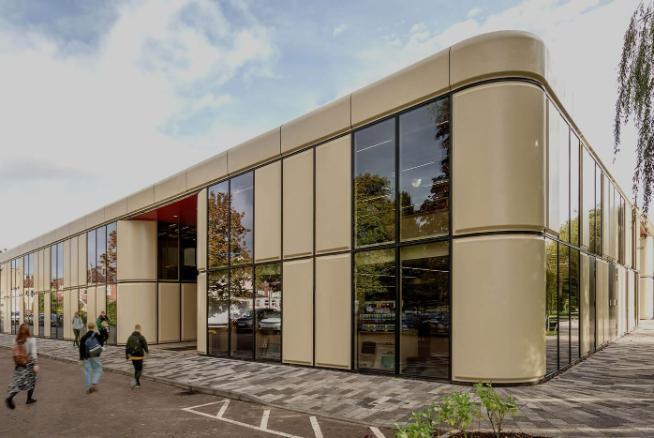
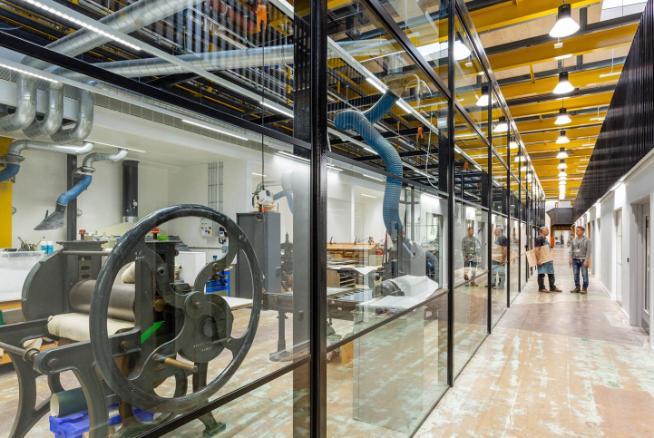
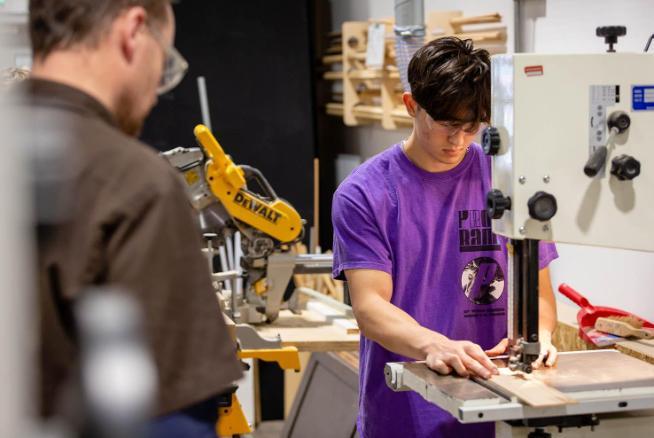
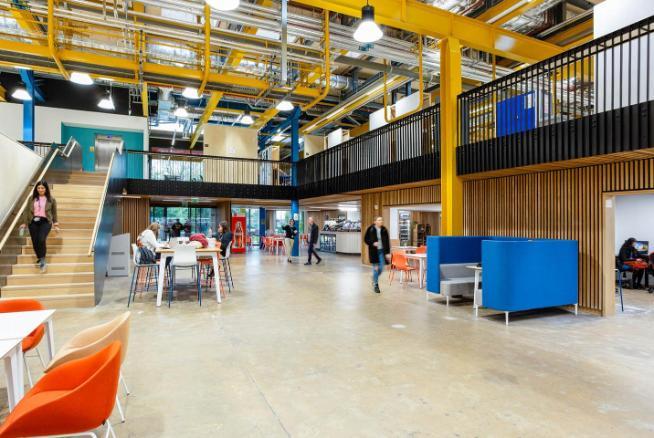
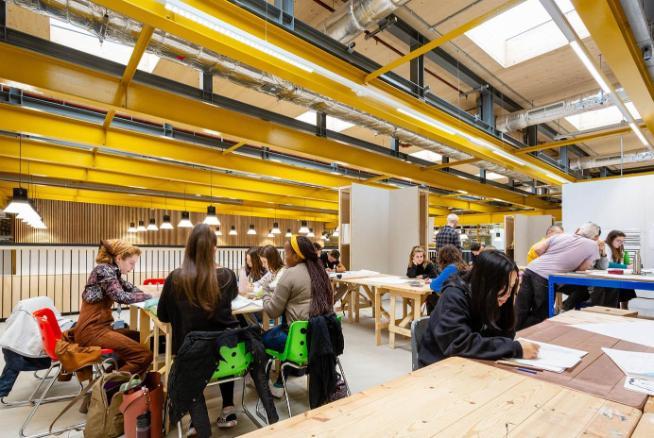
Fees
| Student | Annual tuition fee |
|---|---|
| UK full time | £9,250 |
| UK part time | £4,625 |
| International full time | £17,585 |
Professional Placement Year
During the placement year, the fee is reduced to 20% of the full time fee. This applies to UK and EU/International students.
- UK: £1,850
- International: £3,517
Interested in applying?
We’re looking for highly motivated individuals who have a deep sense of curiosity and willingness to learn. You should be organised, self-motivated and disciplined.
We accept a wide range of qualifications for entry to our undergraduate programmes. The main ones are listed below:
- A Level - grades BBB-BCC preferred including a Grade B in Photography or related subject.
- BTEC – Extended Diploma grades from Distinction Distinction Merit (DDM) to Distinction Merit Merit (DMM) in a related subject.
- T Levels – grade Merit preferred in a relevant subject.
- International Baccalaureate - a minimum of 32 points are required in addition to a HL Photography/Art subject at grade 5.
- Access to HE courses – typical offers for applicants with Access to HE will be the Access to HE Diploma or Access to HE Certificate (60 credits, 45 of which must be Level 3, at Merit or higher) in a related subject.
If you don’t meet the entry requirements above, we may be able to accept your prior learning or experience from outside of formal education. See our Accreditation of Prior Learning (APL) page to learn more.
English Language Requirements for International and EU Applicants
IELTS 6.0 - for visa nationals, with a minimum score of IELTS 5.5 in each element.
Course enquiries
For further information about the programme or entry requirements, please email us at admissions@bathspa.ac.uk.
Interested in applying? Please send any queries to admissions@bathspa.ac.uk.
Need more guidance? Head to our how to apply pages.
As an applicant you will be invited by email to interview and will be required to bring a high quality portfolio in support of your application. Portfolios should demonstrate your passion and motivation. We recommend that you present an edited selection of your most successful photographic work at interview. Print presentation is recommended and should be accompanied by evidence of your research and working methods, for example, process journals and research folders.
International students are required to submit a digital portfolio of recent work to accompany your online application. Digital portfolios will be reviewed by our academic team and in most cases we will ask you to attend an interview over the telephone or via the internet within a few weeks of submitting your application. Digital portfolios should demonstrate your passion and motivation. We recommend that you present an edited selection of your most successful photographic work at interview. Evidence of your research and working methods, for example, images taken from your journals/sketchbook and research folders are recommended in your digital submission.
Course enquiries: Clara Giaminardi
Email: c.giaminardi@bathspa.ac.uk
